Joy Marie Clarkson's Blog, page 2
December 23, 2020
A Christmas Carol
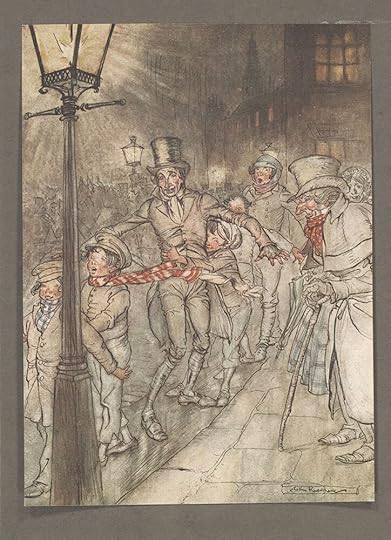
Merry Christmas Eve, Eve! I hope you enjoy this special Christmas episode, in which I reflect upon my annual re-reading of Charles Dickens classic holiday novella A Christmas Carol. This year I was struck by three themes: the sorrow that leads to repentance, the incalculable goodness of life, and the life-giving memory of death. Wishing you all a beautiful Christmas!
Oh cold, cold, rigid, dreadful Death, set up thine altar here, and dress it with such terrors as thou hast at thy command: for this is thy dominion!
But of the loved, revered, and honoured head, thou canst not turn one hair to thy dread purposes, or make one feature odious. It is not that the hand is heavy and will fall down when released; it is not that the heart and pulse are still; but that the hand was open, generous, and true; the heart brave, warm, and tender; and the pulse a man’s.
Strike, Shadow, strike! And see his good deeds springing from the wound, to sow the world with life immortal!
— Charles Dickens, A Christmas Carol
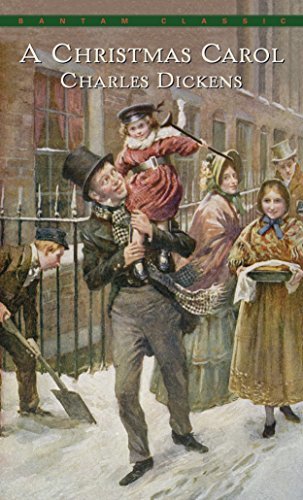
A Christmas Carol (Bantam Classics)
By Dickens, Charles
Buy on Amazon
December 1, 2020
Shadow and Light

I am half agony, half hope.
— Jane Austen, Persuasion
Several Christmases ago, my mother gave me a mug. In the midst of a sky blue lace pattern, printed on thin white china, a quotation could also be discerned: “I am half agony, half hope.” It’s from Jane Austen’s novel Persuasion, spoken by Anne Elliot. “It reminded me of you” said my mother. I laughed. The walls of my soul are thinner than the average bear, and so joy and sorrow slip through in equal waves of intensity. Joy and sorrow are close by. And my mother has seen it all. It is good to be known.
I’ve thought about that mug a lot this year. It’s easy to see the agony in this year— the death, the division, the loss of jobs, the long, long waiting. We are aware, so aware of the agony, but we cannot help but notice intimations of hope. So many marriages, babies, kindnesses and creative solutions in the midst of craziness. In some ways, it is the hope which leads to the agony. Because we have tasted so keenly, and sensed so intuitively, how good and beautiful life is meant to be.
The Apostle Paul describes creation and mankind as groaning with hope in Romans 8:
We know that the whole creation has been groaning as in the pains of childbirth right up to the present time. Not only so, but we ourselves, who have the firstfruits of the Spirit, groan inwardly as we wait eagerlyfor our adoption to sonship, the redemption of our bodies. For in this hope we were saved. But hope that is seen is no hope at all. Who hopes for what they already have?
Who hopes for what they already have? It’s a great question, and speaks powerfully to the posture of the Christian life. In advent we celebrate the Comings of Christ; yes, I meant for that to be plural. Christ has come, “the light has shown in the darkness, and the darkness could not overcome it" (John 1:5). It is good news, but it is not complete. The King has come, is coming, but it is not finished. We await Christ’s second coming, the completion of creation, the redemption of all good things.
We hope for what we do not have.
Christians, then, are people who are half agony and half hope. We have tasted the goodness of the Lord in the land of the living (Psalm 27:13), and because we know that goodness, we feel more keenly the ugliness of the world, it’s unfinished nature. I love how Julian of Norwich describes it. She says that because of Christ’s promise in our heart, we feel an irrepressible joy, but because we are still in this broken world of suffering, we grieve and sorrow to know that we and all creation are not yet at home in God. So we are, as puts it, “this glorious mixture of joy and sorrow.”
In advent, we wait with Mary for the birth of Christ. But we also learn to live in the waiting for the redemption of all things. We learn to live with our glorious mixture of joy and sorrow, our half agony and half hope, proclaiming that it is the joy and the hope which are most secure, most fundamentally true. We remind ourselves that we live in in-between times. We acknowledge that the groaning, the agony, the sorrow we sometimes feel is true, reasonable, and even right to feel. We learn to live well in the waiting.
I wish you all well in the waiting. A beautiful season of coziness, and pressing in, and feeling God’s love. In this blog, I’m attaching a few of my favourite resources, including a podcast I recently recorded with my friend Tsh Oxenreider about her new book Shadow and Light. It came from many years of advent traditions in her family. I hope you enjoy the podcast, and you should pick up a copy of her book. She also has a lovely advent playlist! Listen in, I’ve been enjoying it very much.
I also love Malcolm Guite’s collection of poetry and reflections for each day of advent, Waiting on the Word. I always look forward to Biola’s Centre for Christianity Culture and the Art’s online advent calendar, which sends a painting, song, poem, and scripture reading for each day of advent and Christmas. And of course, I recorded a series of advent podcasts two years ago that you may enjoy. I’ll attach those below. :)
Tidings of comfort and cheer, friends. Wait well.
Much love!
Joy
Podcast with Tsh Oxenreider…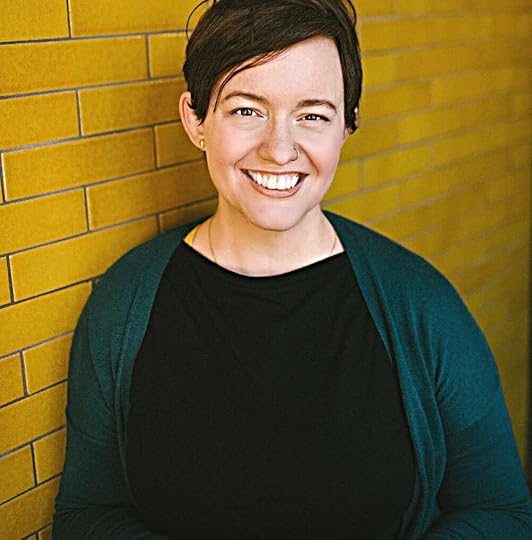
Meet Tsh…
Part intrepid pilgrim and scrutinizer of cultural oddities, part whimsical homebody and charming troglodyte, my name really and truly is spelled correctly. You pronounce it as though there’s an i, like Tish, unless you’re a Starbucks barista, in which you pronounce it Lucy because you give them a fake name to avoid the hassle.
I’m a writer and podcaster who loves traveling and staying home, guacamole and pad thai (but not together), the Internet and the persnickety pulchritude of a really good pen, reading thick novels and a good old-fashioned TV binge, my Kindle and the smell of old books.
I’m currently spending most of my creative energy on book writing (next oneout October 2020!), launching my new podcast called The Good List, and writing longer form + interacting with readers in Books & Crannies, my newsletter. The best way to keep up with me is via my free weekly email letter called 5 Quick Things, though I do chat from time to time on Twitter.
Buy Tsh’ book!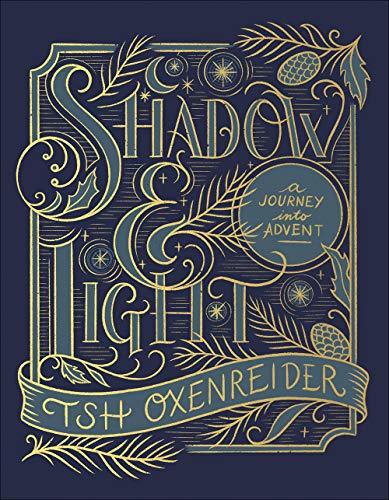
Shadow and Light: A Journey into Advent
By Oxenreider, Tsh
Buy on Amazon
Other Beloved Advent Resources…
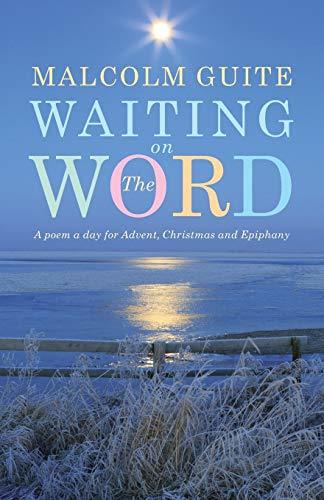
Waiting on the Word: A poem a day for Advent, Christmas and Epiphany
By Guite, Malcolm
Buy on Amazon
Biola Art Advent Calendar
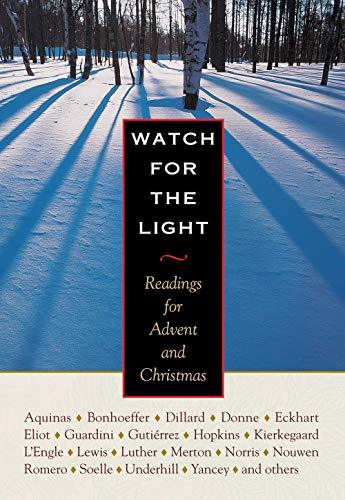
Watch for the Light: Readings for Advent and Christmas
By Bonhoeffer, Dietrich, Dillard, Annie, Merton, Thomas, Lewis, C. S., Nouwen, Henri J. M., Donne, John, Eckhart, Meister, Day, Dorothy, Eliot, Thomas Stearns, Stein, Edith, Aquinas, Thomas, Yancey, Philip
Buy on Amazon
Advent Podcast — Week One
Advent Podcast — Week Two
Advent Podcast — Week Three
Advent Podcast — Week Four
November 23, 2020
Tolkien's Modern Reading

The nights here in Scotland are getting long and dark this time of year, and with the added limitation of covid restrictions, my brother Joel and I have found ourselves gravitating towards an old comfort: reading Lord of the Rings aloud. It has been a surprising consolation. The world of Middle Earth is so large, and yet so familiar; it is nice to inhabit a universe in peril that is not my own. Tom Bombadil is my favourite character, because I do not know what he is about (but I have my suspicions).
But for all its familiarity and fantasticalness, it is also a story which still manages to speak to the heart of our own time. It is a story about a world in peril, where much that was once good is being lost forever. It is a story about power, that the only way to defeat power is to willingly lay it down for the sake of other people.
Have you ever found yourself wondering what books were on the shelf of an author you love?
Well, that’s just what Holly Ordway set out to do in her new book Tolkien’s Modern Reading. Rather unfairly, Tolkien has often been described as something of a fuddy-duddy, uninterested in popular culture and modern literature, never deigning to read a book written after the year 1400. This impression was largely given by Tolkien’s unlikely biographer Humphrey Carpenter, whose barely disguised antagonism toward Tolkien painted an odd an not entirely accurate portrait of Tolkien’s disposition and interests.
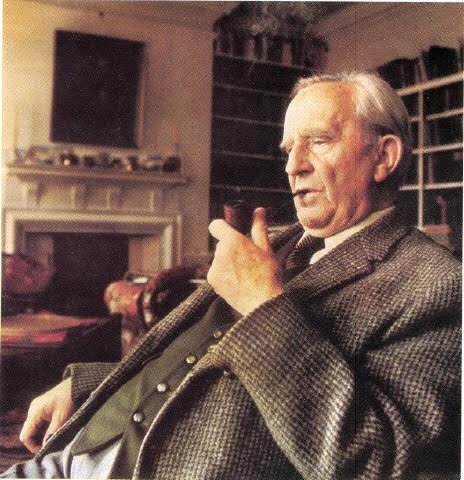
Holly Ordway couldn’t understand how a man whose books have spoken so powerfully to the modern world could be so little interested in it. So she scoured archives and libraries across the globe, reading interviews, letters, and essays to discover what the modern literature that Tolkien read, loved, and was influenced by. What she discovered was that Tolkien much more influenced by the writers and thinkers of his time than is sometimes thought. He read and enjoyed reading widely. A diverse and surprising bibliography began to develop: William Morris, to James Joyce, Dylan Thomas, the once popular and amusingly named Marvellous Land of Snergs.
Holly’s book explores the “mulch” of Tolkien’s fecud imagination, providing insights into the cultural and literary influences that shaped the Lord of the Rings. Last month I got to sit down in a cozy Oxford sitting room with Holly and discuss her new book over a cup of Yorkshire Gold tea. I hope you’ll listen in.
Preorder Tolkien's Modern Reading
Today’s Guest — Holly Ordway

Dr. Holly Ordway is the Fellow of Faith & Culture of the Word on Fire Institute. She is a Visiting Professor at Houston Baptist University and holds a PhD in English from the University of Massachusetts Amherst. She is the author of Apologetics and the Christian Imagination: An Integrated Approach to Defending the Faith (Emmaus Road, 2017) and Not God’s Type: An Atheist Academic Lays Down Her Arms (Ignatius, 2014). Dr Ordway is also a published poet, and a Subject Editor for the Journal of Inklings Studies. Her academic work focuses on the writings of the Inklings, especially C.S. Lewis and J.R.R. Tolkien. Her current book project is Tolkien’s Modern Reading: Middle-earth Beyond the Middle Ages(forthcoming from Word on Fire, 2021).
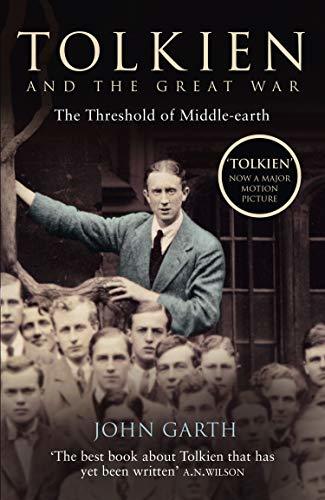
Tolkien and the Great War
By Garth, John
Buy on Amazon
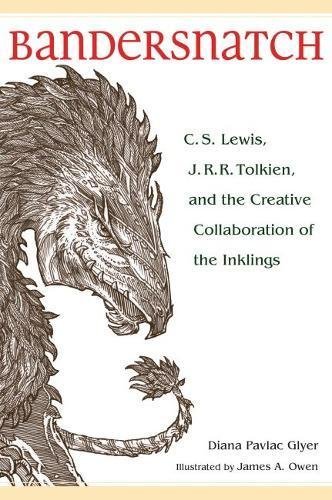
Bandersnatch: C.S. Lewis, J.R.R. Tolkien, and the Creative Collaboration of the Inklings
By Glyer, Diana Pavlac
Buy on Amazon
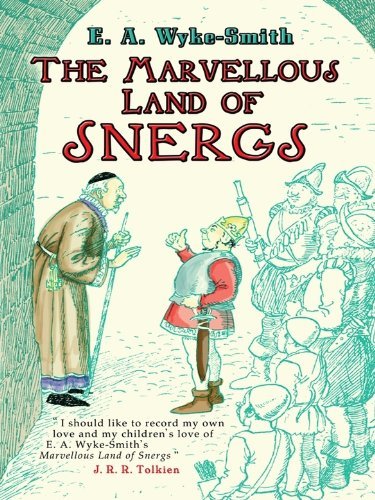
The Marvellous Land of Snergs (Dover Children's Classics)
By Wyke-Smith, E. A.
Buy on Amazon
November 17, 2020
Sacred Strings
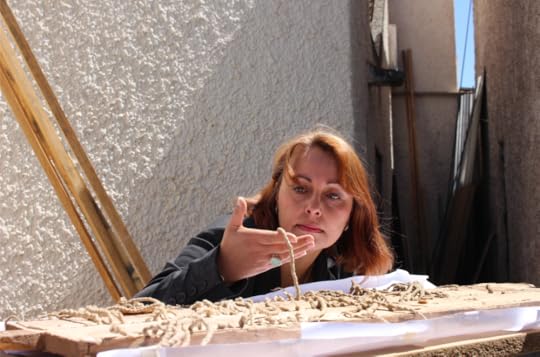
The elders of San Juan de Collata, a village tucked high in the mountains of Peru, invited Sabine Hyland to do her research after a definitive sign had been granted: a rare Vicuña (like a llama) appeared on the hillside. This signalled to them that she had been approved, perhaps even chosen, to study some of the most sacred objects in their village: Khipus.
Khipus are a kind of tool, a series of colour coded knots, Incans used to keep track of inventories. Some researchers believed the knots contained more secrets than how many beans a barn held in the 16th century; some thought the knots told stories, embodied letters, held secret meaning woven in an ancient system that the Colonialists could not read. But no one could figure out how to break the code.
That is until Sabine.
Kept in a box under the church since Colonial times, the elders allowed Sabine to examine their khipus, which led to her discovery of the beginnings of the a phonetic code woven into the khipus. A letter, it seems, long forgotten but suddenly two lines brought to life again. It’s hard to express how exciting and important this is. Science Daily describes it at as decoding “New Rosetta Stone.”
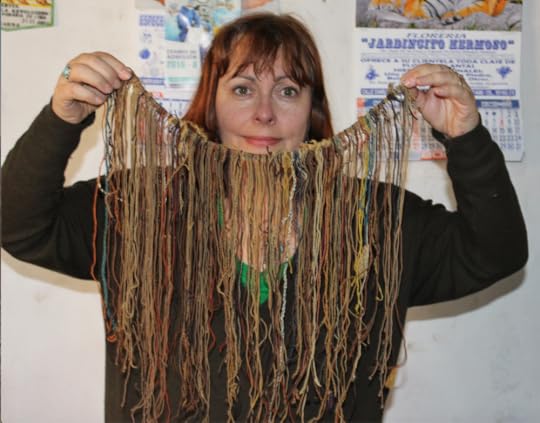
In this week’s episode I got to talk with Sabine about this, and many other adventures.
Sabine is an anthropologist. The dictionary defines Anthropology as “the study of human societies and cultures and their development” but Sabine puts it more poetically; “Anthropology is about trying to understand the full breadth of the human experience.” When she was a little girl, she traveled to Peru with her family and was amazed by how differently the people their experienced the world. She was driven by the belief that in every culture, we see a glimpse of God. When we talked last week, she recalled that breathtaking passage in Romans One:
“For since the creation of the world God’s invisible qualities—his eternal power and divine nature—have been clearly seen, being understood from what has been made, so that people are without excuse.”
Every culture perceives and responds to God, and our view of the world can become impoverished when we only see it through the window of our own culture. By exploring someone else’s culture we become aware of our own blindspots. We begin to wonder, and even believe, that the world might be a richer, more complicated, marvellous, and divine place that we’d let ourselves believe.
It was such a delight to sit down with Sabine and talk about khipus, culture, contentedness, and how our world is interwoven with meaning. And it was so fun to hear her stories of adventure— miraculous signs, horse riding up rock faces, touching strings that embody time itself! And I also so appreciate her thoughts on the rushed and inattentive nature of modern life, and her meditations on how if we slowed down, we might realise life is worth more than money, and that God speaks in quietness.
Listen in. I know you’ll love it.
If you’re interested in learning more about Khipus, you can look at an interactive online museum project on them in Mangas. Sabine writes, “The first Khipu that I studied in the field, the one that Nat Geo made the documentary about, is the hybrid Khipu/alphabetic text from the village of Mangas… the communityput it on display and the museum did a fantastic job.” Click below to find out more!
Chip online exhibit

Today’s Guest— Sabine Hyland
For over ten years, Sabine Hyland has collaborated with elders in remote Andean villages to discover new insights into how native Peruvians communicated through 3D coloured cords known as "khipus". Her research has uncovered isolated communities where khipus -- once thought to have been wiped out during the European invasion in the 1500s -- were used within living memory. The Inkas kept their accounts, histories, and sacred knowledge on khipus; if we could decipher these knotted cords, we could gain an insider's view into their extraordinary empire. Hyland's work has demonstrated, among other things, that khipus signified meaning partially through the tactile feel of different animal fibres and the twist of knots and thread, suggesting an indigenous epistemology in which the sense of touch plays as vital a role as sight.
Scientific American, National Geographic, the BBC, the Times, the Discover Channel (TV) and other media outlets have covered Hyland's work. An anthropologist at the University of St Andrews in Scotland, she began her research career when she was an undergraduate at Cornell University, where she read Anthropology and studied the Andean language, Quechua. She earned her PhD from Yale University, supervised by Richard Burger and Mike Coe. Since then, the NEH, the NSF, the Andrew W Mellon Foundation, the National Geographic Society and the Leverhulme Trust have supported her varied projects, resulting in four books and numerous articles. Her most recent book, The Chankas and the Priest: A Tale of Murder and Exile in Highland Peru (2016) has been hailed as "a mesmerising microhistory" (Hispanic American Historical Review 2018) "revealing a world rich in complexity, human dilemmas, and transformations" (American Historical Review 2017). In 2015 the National Geographic Society selected her as a "National Geographic Explorer" in recognition of her contributions to South American anthropology.
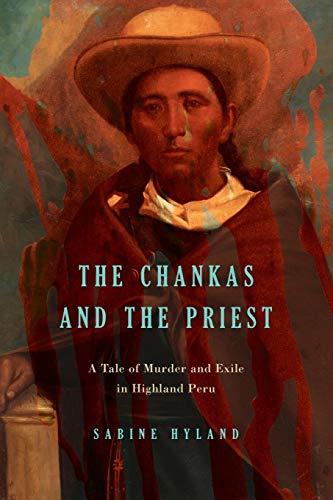
The Chankas and the Priest: A Tale of Murder and Exile in Highland Peru
By Hyland, Sabine
Buy on Amazon
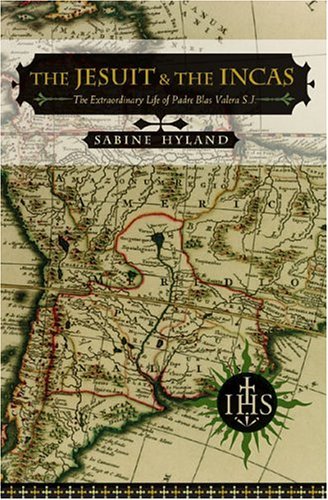
The Jesuit and the Incas: The Extraordinary Life of Padre Blas Valera, S.J. (History, Languages, and Cultures of the Spanish and Portuguese Worlds)
By Hyland, Sabine
Buy on Amazon

Gods of the Andes: An Early Jesuit Account of Inca Religion and Andean Christianity (Latin American Originals)
By Hyland, Sabine
Buy on Amazon
November 9, 2020
Remembered and Remembering

“God doesn’t forget anybody.”
John Swinton has spent his life thinking about what it means for God, and for the Christian community, to be with people whom society often forgets— those with dementia, profound intellectual disabilities, and severe mental illness. He is a practical theologian, whose experience as a mental health nurse and then a pastor, shapes his ongoing concern for how the church might be faithful to the call to make disciples of all, yes all, people. Professor Swinton’s emphasis on God’s presence, is reflected in his own, which is warm, gracious, and gentle. It was an honour to interview Dr. Swinton.
We began our conversation by talking about his award winning book Dementia: Living in the Memories of God, inspired by his years ministering to people with dementia and memory loss on a pastoral level. “Patients with dementia are very much a forgotten people,” he told me, “Everybody thinks about dementia in terms of forgetfulness, but actually people with dementia are very often forgotten by their communities. And I began to think about that theologically, that God doesn’t forget anybody.” In the book, Swinton explores the notion of being remembered by God, and advocates for the practical implications of this theological foundation in how the church includes, remembers, and disciples people with dementia.
“It’s the task of the Christian community to remind us that we are remembered.”
One of the ideas Professor Swinton emphasises is that practical theology which takes into account the needs of those with different abilities is not as a great act of charity, but simply a faithfulness to the call to make disciples of all people. This sometimes requires us to enter into a different speed, a different experience of life. But when we do this with each other, we are only imitating Jesus, who entered into our speed, our experience in the incarnation:
“The average speed that a human walks at is three miles an hour. And Jesus who is God, who is love, walked three miles an hour. So love has a speed, and it’s slow.”
Our conversation was so rich and enjoyable. We also talked about music’s almost magical capacity to awaken dormant memories, the way our bodies become “Letters to Jesus” as they are shaped by our liturgical practices (1 Corinthians 12:27), and Matthias Grünewald’s depiction of the crucifixion, and its profound reminder that Christ enters into the pain and vulnerability of the world, and teaches us how to respond to it.
I so enjoyed my conversation with Dr. Swinton, and I hope you will as well!
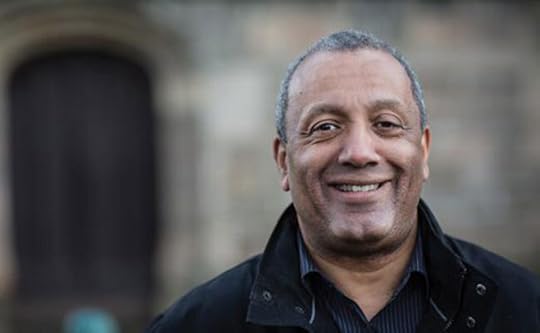
Today’s Guest: John Swinton
John Swinton is the Chair in Divinity and Religious Studies at the University of Aberdeen, and the founder of the University’s Centre for Spirituality, Health and Disability. His writing and research has significantly shaped the field of practical theology, particularly Dementia: Living in the Memories of God, which was awarded the Michael Ramsey Prize for theological writing. His most recent work Finding Jesus in the Storm explores the spiritual life and spiritual care of Christians with mental health challenges.

Isenheim Altarpiece, Matthias Grünewald and Nikolaus Hagenauer 1516.
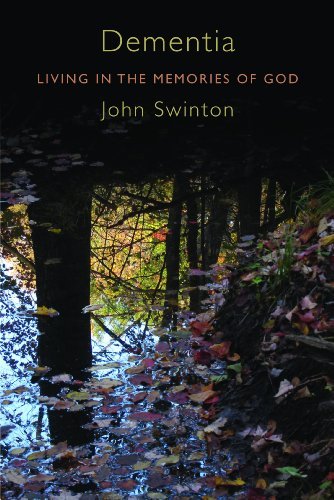
Dementia: Living in the Memories of God
By Swinton, John
Buy on Amazon
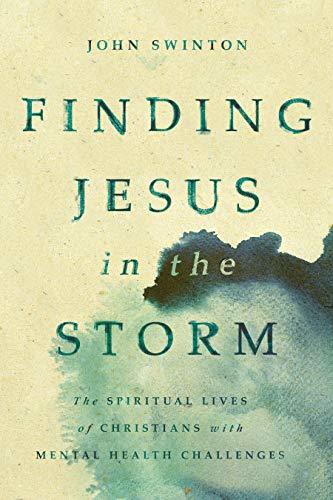
Finding Jesus in the Storm: The Spiritual Lives of Christians with Mental Health Challenges
By Swinton, John
Buy on Amazon
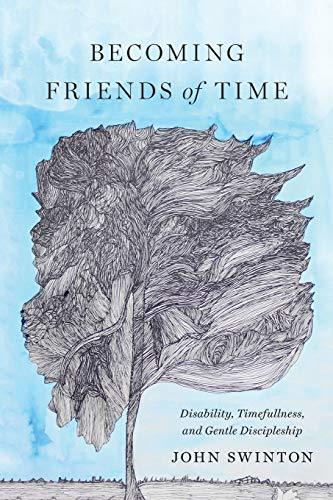
Becoming Friends of Time: Disability, Timefullness, and Gentle Discipleship (Studies in Religion, Theology, and Disability)
By Swinton, John
Buy on Amazon
October 27, 2020
Bookish, Tranquil, and Wise

Interrogate the writings of the wise.. asking them to tell you how you can get through your life in a peaceable, tranquil way.
— Horace, Epistles
It is not often that you get to discuss books you love with an author you admire.
But that is precisely what I got to do in this episode. Dr. Alan Jacobs is what I want to be when I grow up: a distinguished professor of Humanities who pens insightful books with delicious prose in his spare time. Contributing regularly to places like The Atlantic and First Things, Dr Jacobs has revived the tradition of the Christian intellectual, helping people draw the lines between theology, philosophy, and literature, with what’s happening in the world today.
A few weeks ago, I poured a cup of tea and Skyped Dr Jacobs to talk about his new book Breaking Bread with the Dead: A Reader’s Guide to a More Tranquil Mind. He jokingly refers to it as a “self-help book”, which gives readers one tool for navigating the tumultuous and shallow waves of public discourse: reading old books. Dr Jacobs is concerned about the way that social media steals our tranquility and robs us of the ability to grasp the complexity of issues which purport to be solved in the swift and retributive justice of trending hashtags. He compares the exhaustion generated by this mode of living to Paul’s admonition that Christians not be “tossed here and there by waves and carried about by every wind of doctrine” (Ephesians 4:14). Allowing ourselves to be counselled by old books helps us develop a complex view of the world and gives us peace as we gain a historic perspective on the long struggle to act justly and live well.
Talking with Dr Jacobs was an edifying delight. My favourite part? Near the end, I got to ask his thoughts about my most recent literary obsession: Susanna Clarke’s new novel Piranesi (which I seem incapable of pronouncing correctly!). This conversation was as cozy and intellectually stimulating as a strong cup of Yorkshire gold. I hope you’ll enjoy it as much as I did.

Today’s Conversation Partner…Alan Jacobs
Dr. Alan Jacobs is Distinguished Professor of the Humanities in the Honors Program at Baylor University. He began teaching at Baylor in 2013 and is a Resident Fellow of Baylor’s Institute for the Studies of Religion. Prior to his time at Baylor, Dr. Jacobs taught at Wheaton College in Illinois for twenty-nine years. He earned a B.A. from the University of Alabama and a Ph.D. from the University of Virginia. Dr. Jacobs is the author of many books including, most recently, How To Think and The Year of Our Lord 1943. His next book is called Breaking Bread with the Dead: The Case for Temporal Bandwidth (Penguin Press). More information about his research interests and his (Joy inserts: delightful and edifying!) writing may be found at his website.
Alan Jacobs' Website
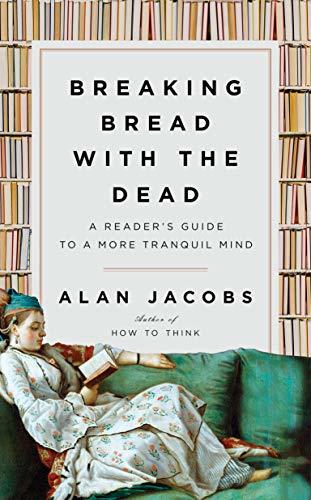
Breaking Bread with the Dead: A Reader's Guide to a More Tranquil Mind
By Jacobs, Alan
Buy on Amazon
October 19, 2020
An Exercise in Hope

Reading while Black was an attempt… to speak directly to the community that raised me using the Bible as a source of hope… trying to make sense of what it means to be Christian in America.
“I have a bias for joy,” proclaimed Dr Esau McCaulley with a conspiratorial grin. We were talking about what it looks to parent his four children in a frightening world. How do you tell a child about a pandemic sweeping across the globe? When do you explain to your young black son that he will experience prejudice in his life? That he must be cautious in his interactions with police officers? These are heavy things, and yet McCaulley still smiles. Life is full of peril and adulthood is long, he explains. He wants his children to experience the joy of childhood. In his New York Times column, he writes:
I am making deposit after deposit of Black joy and faith in the hope that it will be with them when the inevitable struggle comes. I do so because that is what my mother did for me.
I Skyped Dr. McCaulley to chat with him about his new book Reading While Black: African American Biblical Interpretation as an Exercise in Hope (Intervarsity Press, 2020).
Dr McCaulley wrote the book he needed when he was twenty two. He told me that he considers Reading While Black a “fulfilment of a trust”: “I was given this gift as a kid of the faith of African Americans who despite all the things they’ve experienced, believe in God.” The book addresses all the things McCaulley wrestled with as a young African American christian: black identity, justice and injustice, anger, and perhaps most of all, hope. The beating heart of McCaulley’s book is the miraculous, unquenchable work God has done in and through the African American church.
I was trying to put my finger on what God is doing in and through African American churches.
And that is just what he has done, with skill, honesty, and the friendly, immovable confidence of someone who knows their hope is hidden in Christ. I enjoyed every minute of our conversation, from why we read hero stories when times were tough, to the history of bible reading and its revolutionary effects in slave communities in America, to the way that African American biblical interpretation saved anthropology, to the power of scripture to both speak to and unite our unique experiences, to the triumphant joy of Kirk Franklin’s gospel music.
I hope you will give this episode a listen, say a prayer for the ongoing work of the Spirit in the African American Church.
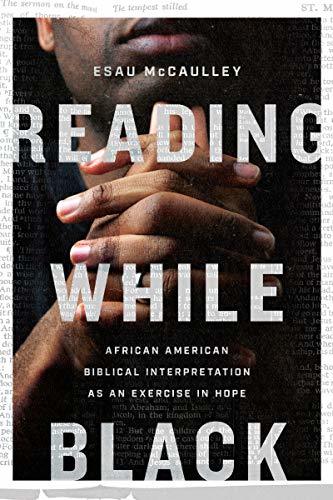
Reading While Black: African American Biblical Interpretation as an Exercise in Hope
By McCaulley, Esau
Buy on Amazon
Today’s Conversation Partner: Esau McCaulley
The Rev. Canon Esau McCaulley, PhD is a New Testament scholar and an Anglican Priest. He completed his doctoral studies at the University of St Andrews where he studied under the direction of N.T. Wright. His research and writing focus on Pauline theology, African American Biblical interpretation, and articulating a Christian theology of justice in the public square
His doctoral dissertation, called Sharing in the Son’s Inheritance, was published by T & T Clark in 2019. Sharing in the Son’s Inheritance looks at the role Jewish messianism played in Paul’s argument in Galatians that Jesus has made believers heirs in the Messiah to the Abrahamic promises.
His second book Reading While Black: African American Biblical Interpretation as an Exercise in Hope will be published by Intervarsity Academic press (September 1, 2020). Reading While Black looks at the tradition of African American biblical interpretation and argues that the Bible rightly understood and read from a decidedly black perspective can speak a word of hope to African Americans in the United States.
Alongside these more academic works, he writes popular pieces. He is a contributing opinion writer for the New York Times. He has also appeared in outlets such as Christianity Today and the Washington Post. He is also the host of the Disrupters Podcast and functions as a Canon Theologian for his diocese.
Dr. McCaulley, currently, serves as assistant professor of New Testament at Wheaton College in Wheaton, IL. He is married to Mandy, a pediatrician and a Navy reservist. Together, they have four wonderful children.
Learn more about Esau McCaulley
October 12, 2020
Good Conversation (with my mom)
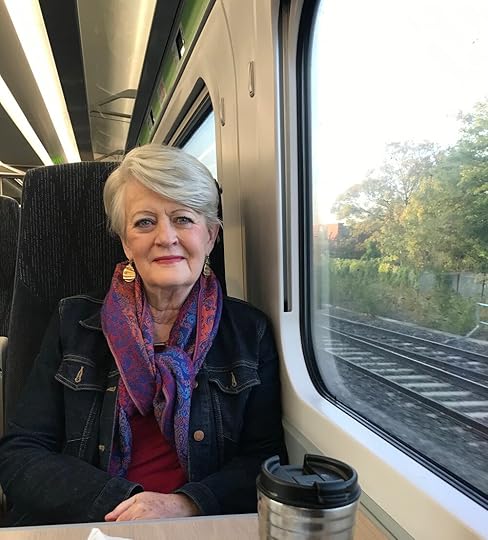
My mother across a table, a sparkle in her eye, is a portent of good things. Bent across the breakfast nook table, over a cheese egg quesadilla in our favourite hipster coffee shop, jostling with a cappuccino down a train track… the many permutations of this image in my mind represent the beginning of something more satisfying than the food inevitably involved: a good conversation.
One of the unique things about my mother was the way she always made me feel like my thoughts were worth listening to, engaging with, improving upon. From the time I was very little, I was not merely a child, but a conversation partner, a fellow discoverer of the world and investigator of its riches. Graciousness and honour were a high value at our dinner table; teaching my siblings and me to listen, disagree, and debate humanely was the constant struggle of my mother’s life. She was always teaching us to be good conversation partners: to have something worth saying, to say it well, to listen well, to ask good questions.
And so when she sits across from me, with a sparkle in her eye, I know that something good is coming.
I recently sent my advisor a full draft of my Phd. The process of editing the full draft got me to thinking about how a PhD is the culmination of a immense entanglement of many conversations. Conversations with my advisor and my colleagues, certainly, but best bits were born on long walks in the University Parks with my mother, over cups of coffee with friends, at the dinner table with my brother, late night arguments with myself. And then there’s the mysterious conversation with the hundreds of sources and books and authors with which I engaged.
I think of theology as a conversation which spans centuries, a long tradition of asking "What is God like? How do we live together? What is the meaning of life?" At its best, academic study is learning to join in on those conversations, learning the etiquette, the right way to ask questions, to listen, to evaluate, to have something worth saying. And this is a lesson I learned far before I flew across the sea to Scotland, and even before I drove across Death Valley to my undergraduate degree in California. I learned the art of conversation around my dinner table, where my parents asked us questions, taught us to ask questions, and they tried as best as they could to help us honour each other by listening, arguing, and thinking well.
So when I think of my Phd, it is not the fruit of some personal brilliance (ha!!), but the culmination of many conversations, and hopefully the beginning of more...
A good conversation is about the joy of discovering, enjoying, clarifying truth together. It is about discerning what is true, wise, trustworthy. It involves trying many points of view on for size, about entering into the mind of another, comparing it with your own, broadening your horizons. It involves communion, vulnerability, the fear and elation of being seen, understood, and known. A good conversation with a friend is one of life’s greatest pleasures, and most essential gifts.
And when I look at the world, I see that we are losing the practice and the joy of good conversation. And in losing it, we lose both the wisdom that comes from listening, and the joy that comes from connection over conversation. We are lonelier and more foolish for it. And I want to do something about that.
So this year, I’ve chosen conversations as the theme for my podcast and Patreon.
Each week on my podcast, I will host a conversation with people I admire, enjoy, and whose brains I have long desired to pick. Some are old friends, some are new friends, some are scholars whose work I have enjoyed at a distance, some are people whose perspective I crave. I hope that as you listen, you consider yourself a part of the conversation, and that it inspires you to join in the conversation— with a friend over a cup of tea, in the comments on instagram, through writing an essay in response. I hope these episodes will bring wisdom and a sense of connection. That they will be islands of tranquility and insight in the madness of 2020.
And as my first guest, I’ll chat with the person who taught me to converse: The Sally Mama.
We talked about education as an induction into conversation. About Christ as the conversation partner. About the importance of honouring the voice of others.It is a little taste of those many times sitting across a table from mama, with a sparkle in her eye. I hope you’ll listen in this week and in the episodes to follow. I can’t wait to hear what you think.
(it is a conversation after all).
This episode’s conversation partner…
Sally Clarkson (known to me as “Mom”)
Sally Clarkson is a best-selling author, world renowned speaker, and beloved figure who has dedicated her life to supporting and inspiring countless women to live into the story God has for them to tell. She hosts a weekly podcast "At Home With Sally" where she invites you into her home, thoughts, and life to share her candid wisdom and winsome discipleship. The podcast reaches women around the world and now has over twelve million downloads.
Sally has been married to her husband Clay for almost forty years and together they founded and run Whole Heart Ministries an international ministry seeking to support families in raising faithful, healthy, and loving children, in an increasingly difficult culture. Sally has four children, Sarah, Joel, Nathan, and Joy, each exceeding in their own fields as academics, authors, actors, musicians, filmmakers, and speakers.
Sally lives between the Mountains of Colorado and the rolling fields of England and can usually be found with a cup of tea in her hands.

Awaking Wonder: Opening Your Child's Heart to the Beauty of Learning
By Clarkson, Sally
Buy on Amazon

The InkletsWant to join a weekly discussion group and supporting Speaking with Joy?
After a fulfilling summer book club of Revelations of Divine Love, I decided I wanted to institute a more regular reading group. Thus, the Inklets. This is a smaller group of people dedicated to reading and talking together, and who are keen to help me finish out this Phd journey. Each week , I will post a reading, a mini-secret podcast on that reading, a short essay about it, and discussion questions. The readings will always be small, and available somewhere for free online. My conversational goal with these posts is threefold: First, to introduce you to some of the historic conversations about goodness, truth, and beauty. Second, to make you feel confident in joining that conversation yourself. And finally, to invite you into conversations with each other, to try on ideas, to see things in new ways, to disagree when you must, but most of all to enjoy, to learn together, and to be a small online outpost of literary companionship.
Here is a list of the readings so far (in no particular order!):
Learning in Wartime by CS Lewis
The Five Ways by Thomas Aquinas
Harlem by Langston Hughes
Rook in Rainy Weather by Sylvia Plath
Excerpts from After Virtue by Alasdair MacIntyre
Excerpts from Life of Saint Macrina by Gregory of Nyssa
Ethics of Elfland by Chesterton
The Danger of a Single Story by Chimamanda Ngozi Adichie
Why I'm Not Going to Buy a Computer (and selected poems) by Wendell Berry
If by Rudyard Kipling
What Man Has Made of Man by Wordsworth
God's Grandeur/As Kingfishers Catch Fire by Gerard Manley Hopkins
On Fairy Stories by JRR Tolkien
La Belle Dame Sans Mercy by Byron
Excerpts from Confessions by Saint Augustine
Excerpts from Tree of Life by Bonaventure
Excerpts from On the Incarnation by Athanasius
If you’re interested in joining, check out my Patreon below.
The Inklets — Patreon
September 11, 2020
God's Hazelnut

I ordered this necklace, a silver hazelnut, to celebrate a summer of reading Julian of Norwich. Reading her little book “Revelations of Divine Love” has meant a lot to me this summer, so I thought I would share a little about it here.
Julian lived in unstable times, much like our own. The plague swept through England in her lifetime, devastating families and economies; she witnessed a great deal of suffering, which is evident in her vivid descriptions of decaying bodies. Her hometown experienced the violent upheaval of the Peasants Revolt, a movement seeking social and socioeconomic justice. We know almost nothing about her life before age thirty, but one can’t help but think these things might have effected her. Did she lose loved ones in the Plague? Perhaps even a husband or children? We cannot know.
But what we do know is that she was an anchoress, which is a kind of monastic calling where one is elected and installed by the Bishop to live in a cell by the Cathedral, to pray, read scripture, advise and love the local Christians. She quite literally chose a life of permanent self isolation, as we have found ourselves doing, sometimes unwillingly. I often find myself wishing there were still anchoresses, and that I could go sit at Julian’s window, and tell her all the things I wonder worried and wondering about.
And we also know that at age thirty, she had a series of spiritual visions (“shewings” as she calls them) and experiences, which at first she doubted, but was eventually convinced to record. Which, a fun aside, happens to be the first book in English, written by a woman.
Her visions are about God’s love, and how that love keeps us safe. Over and over again she says “He is keeping us very safe.” God keeps us safe when we sin, never wavering in devotion to us, like a mother who could never turn away from her child (she uses this metaphor). He keeps us safe in suffering, not willing that anything evil should ever happen, but ensuring that the nothingness of evil never has the final word.
In her most famous vision she sees a little thing in God’s hand, what she takes to be a hazelnut. She asks God what it is, and he says “it is all that is made.” I love what she says next.
I wondered how it could last, for it seemed so small it might disintegrate... In this little thing I saw three properties: the first is that God made it; the second is that God loves it; the third is that God cares for it.
So often lately, when I look at the news, I find myself asking the same question: “how can it last?” Somehow it is comforting to know that a little woman in a cell in fourteenth century England thought it too. But Julian’s conviction is that there is peace at the heart of things, and more than that, there is love. And that love is fundamental, indissoluble.
And so she concludes: all shall be well, and all shall be well, and all manner of things shall be well.
But this is not some deterministic affirmation that everything that happens (wild fires, death, and inanity) is from the will of God. No, humans can and do suffer and cause to suffer. For Julian, God’s love doesn’t mean that we are “safe” here and now. It means that no matter what afflictions, sufferings, and destruction we experience here, it is never the truest thing about the world, and it is never final. Meditating on Jesus’s words “In this world you will have trouble. But take heart! I have overcome the world” in John 16:33, she says:
He said not 'Thou shalt not be tempested, thou shalt not be travailed, thou shalt not be dis-eased'; but he said, 'Thou shalt not be overcome.
Julian looks to Jesus who overcomes death, by death. Pain by pain. She trusts the God who loved her (and you, and me) enough to take on this fragile flesh, to feel pain, to die and rot like we will die and rot, will not see his creation finally destroyed. In the moments when she can see, really see, God’s love, she knows she is safe, and that he will not abandon his made, cared for, and loved world. In some mysterious way, all really will be well.
But isn’t it hard to believe sometimes? And perhaps that’s the other reason I love Julian. Even right after she has these glorious visions, she’s sometimes overwhelmed by fits of doubt. I found this passage extremely relatable.
In this delight I was filled full of everlasting certainty, powerfully sustained, without any fear. This feeling was so welcome to me and so excellent that I was at peace, at east, and at rest, so that there was nothing on earth that could have distressed me.
This only last a while, and my mood turned right round and I was left to myself, feeling depressed, weary of myself and disgusted with my life, so that I could hardly have the patience to go on living.”
“Left to myself, depressed, weary of myself and disgusted with my life”… oh, I chuckle as I type this. Haven’t we all felt that way? Don’t we all feel it more often lately? Reading Julian has taught me to take these moments in stride. Julian comforts me: “If there is anywhere on earth a lover of God who is always kept safe, I know nothing of it, for it was not shown to me. But this was shown: that in falling and rising again we are always kept in that same precious love.”
How can I end this little letter of adulation for Lady Julian? It is hard to give a neat conclusion, for she gives none. She only gives these two truths as vividly as she can: that God loves us, and nothing can remove us from that love.
So lately, when I find myself afraid, exhausted, or bland, I think to myself “God is keeping me very safe.” I remember God’s hazelnut. And I hope that Mother Julian is praying for me.
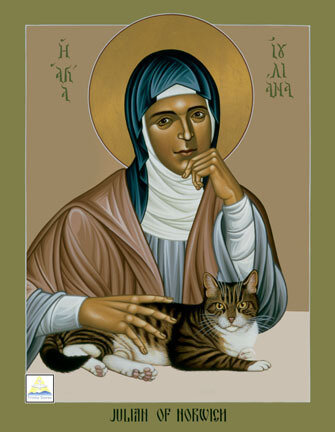
Icon of Julian with her cat by Br Robert Lentz OFM
p.s. I would be remiss if I did not thank the wonderful people who joined me in reading Revelations of Love, at my Patreon, who so deeply enriched my experience of it, and especially Lisa who found this discovered the necklace above, a perfect keepsake of a precious summer.
August 31, 2020
Reading with Joy — Chapter Twelve

...suddenly she knew.
She knew!
Love.
That was what she had that IT did not have.
— A Wrinkle in Time by Madeleine L'Engle
Cheers to us! We’ve made it to the final chapter of our summer of Reading with Joy. To celebrate, I have a special treat: a conversation with Madeleine’s own lovely granddaughter, Charlotte Jones Voiklis. I’ve always had the feeling that Madeleine’s soul was written in A Wrinkle in Time. Hearing Charlotte’s perspective confirmed that Meg’s story is her own “song of praise to life”—a manifesto reminding us that love is a light to guide us even when all other lights go out.
Meg begins this final chapter still angry and fearful, which doesn’t seem very promising. But her tears stop as abruptly as they started as she is healed body and soul and sees clearly that only she has the ability to save Charles Wallace from Camazotz. Even though no one—not her father, not her guardian angels, not Calvin—can come with her, she does not go alone or helpless. Her power against IT is not anger, or cleverness, or physical strength— IT knows all about those things. What IT cannot comprehend is the kind of self-sacrificing love which would walk in vulnerability despite great danger for the sake of another.
Charlotte and I had a wonderful time talking about the wonderful ways that God has chosen the foolish and the weak things of the world to confound the mighty, so that love in all its vulnerability does more to fight against the darkness than all the “power” in the world. I hope you have as much fun listening to it as I did recording it.
It’s not too late to join in!This is how the book club works: I’ll post an episode per chapter each week on Monday, which you can listen to in preparation for discussion. Then, I’ll post discussion questions on this website, my instagram, my twitter, and my Facebook. (full disclosure: I think discussion tends to go best on Instagram and Facebook). Post your thoughts, comments, questions on these threads as a way to engage the text. I also encourage you to discuss the book in real life (or over Facetime, given our weird times!) with a real friend… it’s so much more fun! In that spirit, each week I’ll have a different guest discussing each chapter with me.
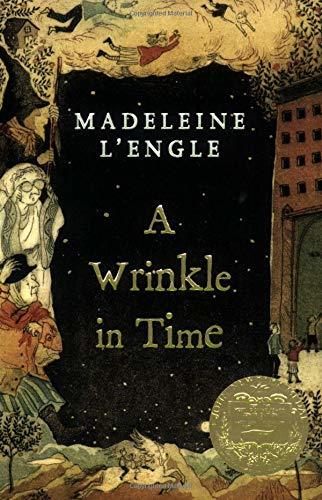
A Wrinkle in Time (Time Quintet)
By Madeleine L'Engle
Buy on Amazon
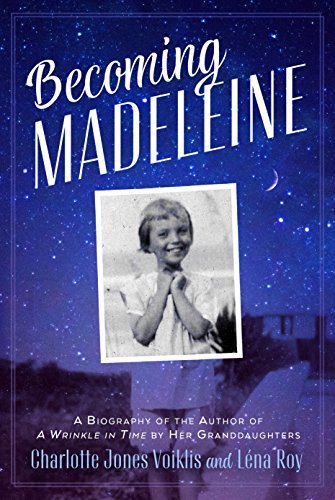
Becoming Madeleine: A Biography of the Author of A Wrinkle in Time by Her Granddaughters
By Voiklis, Charlotte Jones, Roy, Léna
Today’s Guest: Charlotte Jones Voiklis
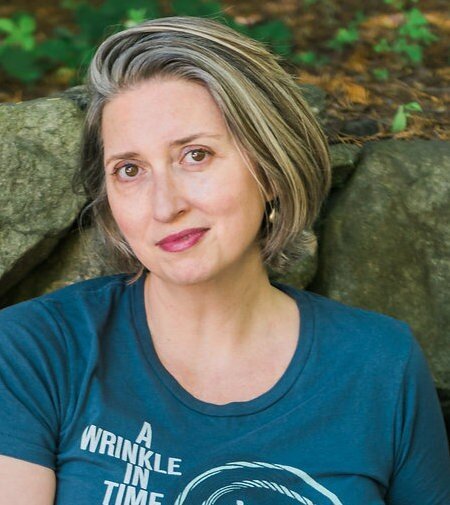
Charlotte Jones Voiklis is Madeleine L’Engle’s granddaughter and executor of her estate. She wrote a biography, Becoming Madeleine, for middle grade readers with her sister, Léna Roy, that came out in February 2018. She wrote the afterword to the 50th Anniversary edition of A Wrinkle in Time, and and intoduction to The Moment of Tenderness, that comes out in April 2020. has also written and spoken of her grandmother’s work to a variety of audiences. With a PhD in Comparative Literature, Charlotte’s work experience includes teaching, fundraising, communications, and grant making. She is also a volunteer mediator in the New York City court system. You can follow her on Twitter @charlottejv or on Instagram @cjvoiklis.
DISCUSSION QUESTIONMeg finally understands in this chapter that love is more about what you do than what you feel. How does her love for Charles Wallace make her the best candidate to rescue him from Camazotz? How does our delight in each other make us better warriors against the darkness than worldly power?ANNOUNCEMENTThank you for listening in, friends. It has been such a joy to host this book club. The conversations each week, both with the guests on the show and in the comments on instagram and facebook, have consistently challenged, encouraged, and illuminated my understanding. A quick note of update: Speaking with Joy will be back with its ordinary episodes in October. I'm on the cusp of a great deal of change in my life, as I approach the end of my Phd. I don't know if I will be able to continue the podcast next year, but what I do know is that I want to make this year's episode a veritable feast of compelling ideas, beautiful art, and good conversation partners. I've already recorded a number of episodes, and, in addition to my "classic" format episodes, have been reaching out to some of my favourite scholars, artists, and thinkers to do interviews. I hope you love the series, and that at least one episode speaks especially to your heart and mind.All this to say, I'll be on a short break in September, but am excited to kick off the new season in October. Be well till then, and I'll see you all soon!Joy Marie Clarkson's Blog
- Joy Marie Clarkson's profile
- 227 followers



